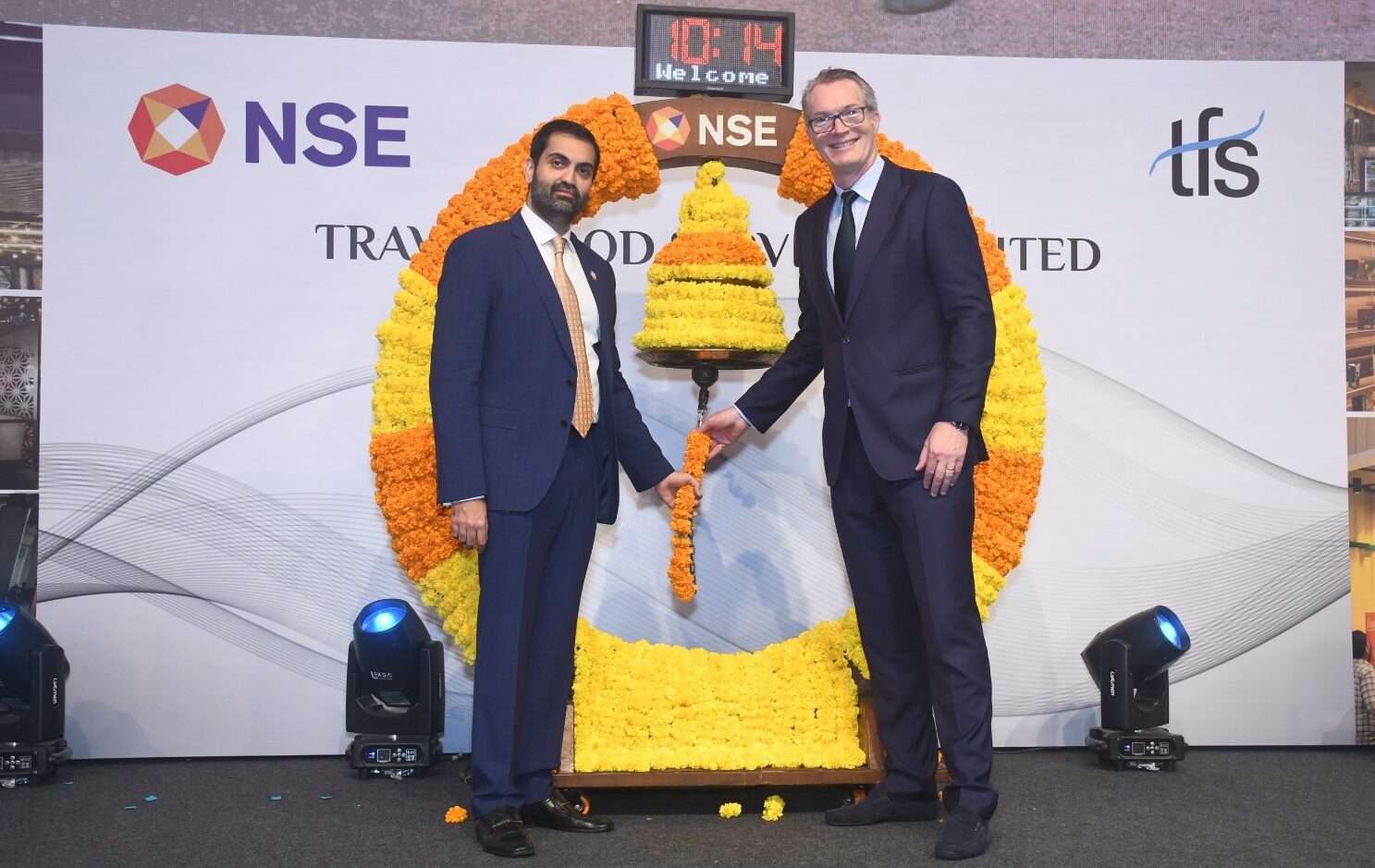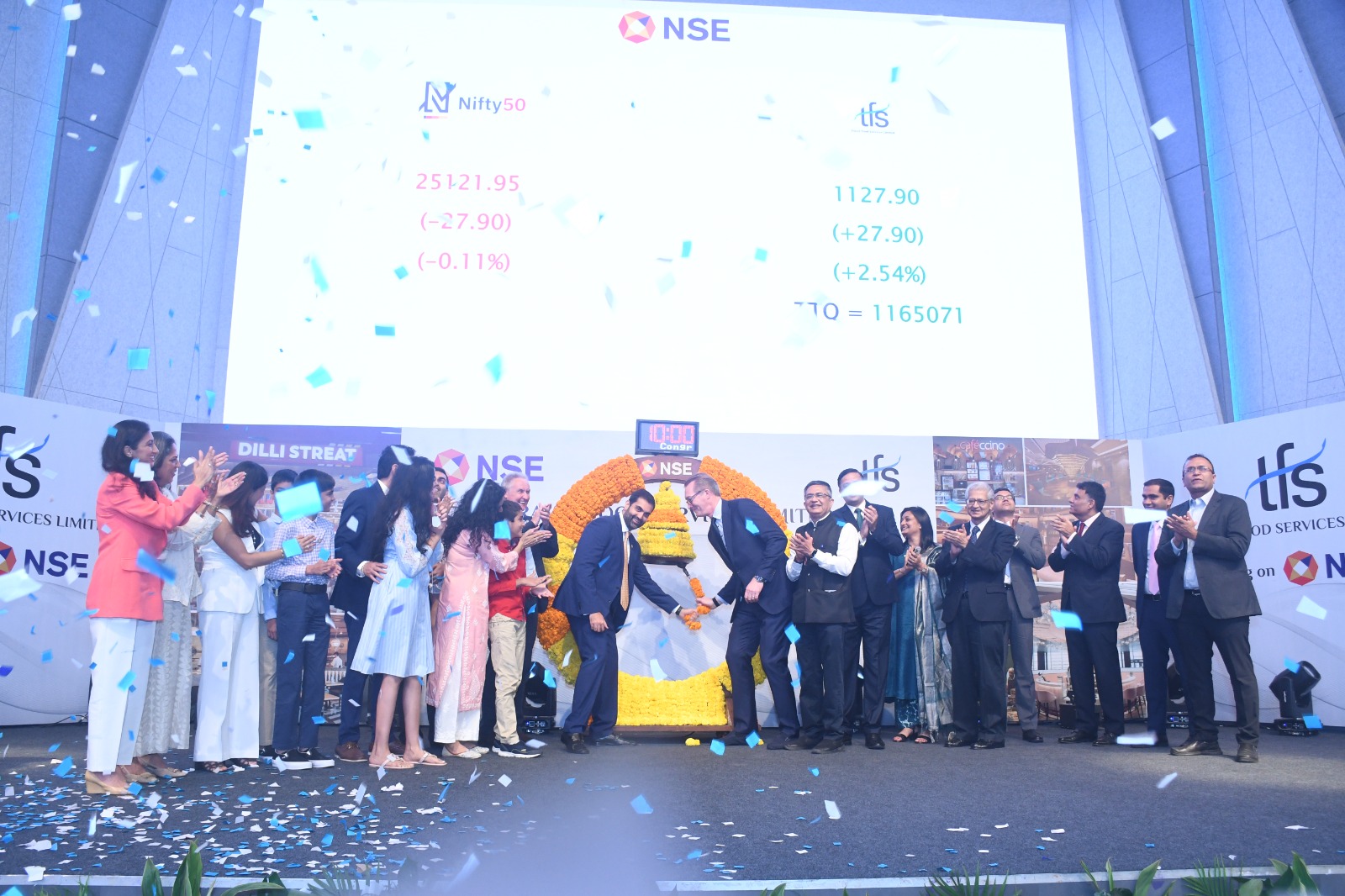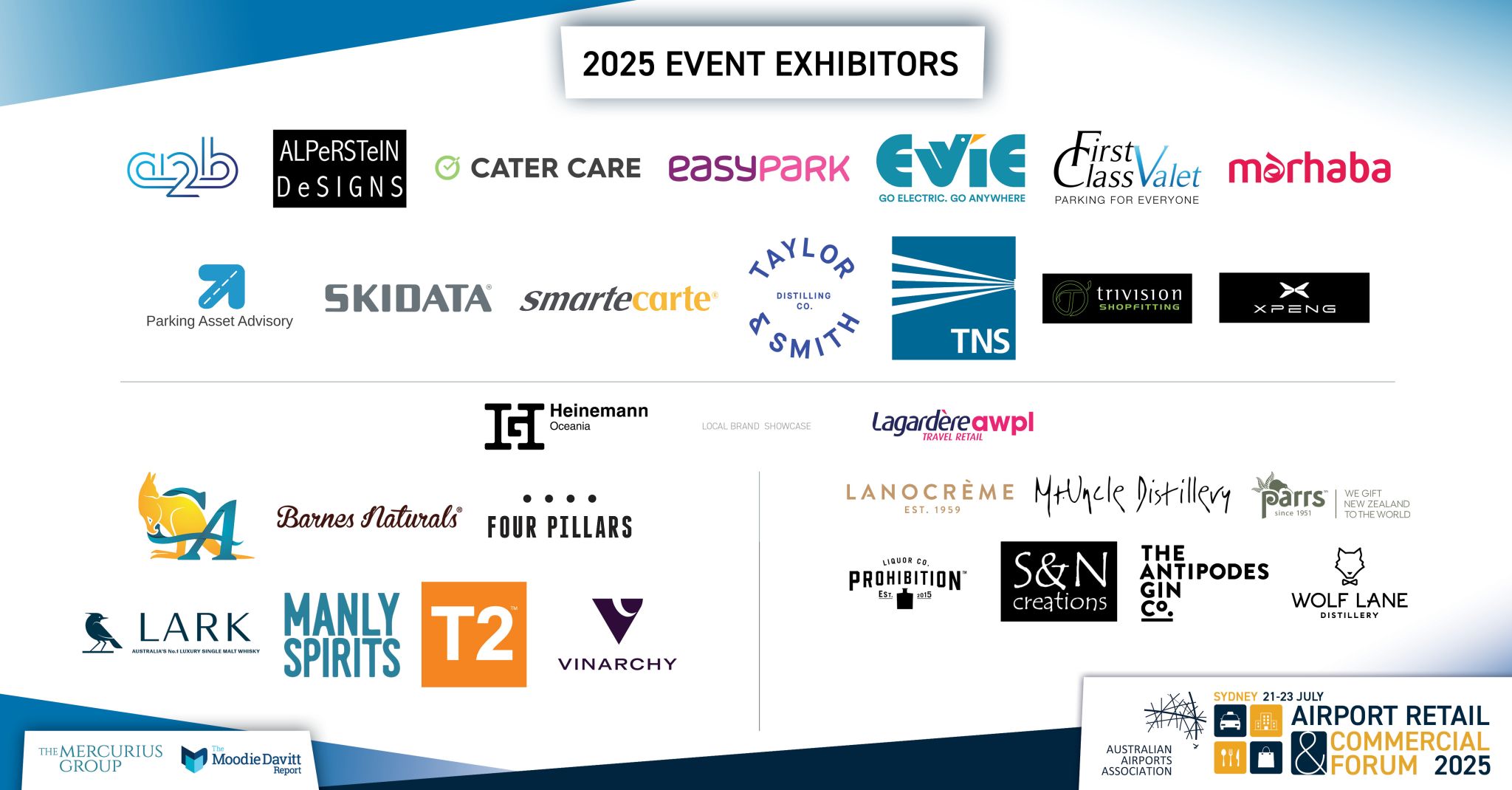USA. JFK T8 Innovation Partners (T8 Partners) is seeking Requests for Information (RFI) from potential operators interested in the opportunity to develop and manage the Food Hall concessions at New York John F. Kennedy International Airport (JFK) Terminal 8.
T8 Partners, a joint venture led by Unibail-Rodamco-Westfield (URW), was recently awarded the contract to redevelop and manage the T8 commercial programme in partnership with American Airlines and the Port Authority of New York and New Jersey. The US$125 million project will feature more than 60 new shopping and restaurant offerings, including a Food Hall inside the new Great Hall development.
In the Food Hall, some 15,978sq ft of space is available in the main terminal, with an additional 1,223sq ft set aside for a ghost kitchen.

The F&B programme will emphasise locally-owned and diverse businesses, feature Sense of Place in the design and will create opportunities for the community, said URW. The programme will also showcase New York’s culinary scene in the offer and reflect the diverse communities adjacent to JFK.
The URW design vision for the Great Hall includes:
- Capturing the grandeur of New York’s squares along Broadway;
- Unifying and transforming the space with a dynamic, wooden-slat architectural element that creates a show-stopping moment and acts as a strong branding statement
- Visually striking wood ribbon lounge seating connecting the Recompose Area to what lies beyond, encouraging discovery and providing a place to sit, regroup, or repack a bag; and
- Digital elements arrayed throughout the journey linking the physical environment to offers, conveniences and customised experiences.
A big focus of the redevelopment is targeted toward maximising exposure to the Food Hall and duty free zones by driving the main passenger flow through this core offering.
URW said it expects the Food Hall operator to provide ample opportunities for local, minority and women-owned businesses, through participation by certified Airport Concession Disadvantaged Business Enterprises (ACDBE) and Local Business Enterprises (LBEs) within the programme. The minimum percentage goal of food & beverage venues in the Food Hall to be sub-leased and operated by New York City-based businesses is 50%, with 25% dedicated to LBE businesses or entrepreneurs.

JFK T8 Food Hall RFI – Anticipated Timing
- Request for Information (RFI) – 25 August 2023
- RFI submissions due – 15 September 2023
- Estimated date of RFP release: 13 October 2023
- Estimated RFP submission sate: 15 December 2023
- Estimated award date: 5 January 2024
Note: This is the first of a two-phase approach to obtain proposals for this opportunity. All respondents must first complete Phase 1 (Request for information) in order to submit a proposal (Phase 2) and be considered for the opportunity. Following receipt of RFI responses, URW will invite Respondents to complete Phase 2 proposals for this opportunity.
Q&A
Speaking to The Moodie Davitt Report, URW Senior Vice President, Commercial Strategy Kim Gray said the RFI will inform the and help tailor the procurement process and Request for Proposals (RFP) to the needs of the market.
Tell us about the opportunity for the JFK T8 Food Hall, and what you are seeking from this Request for Information process?
Kim Gray: The Food Hall is a burgeoning typology, which to my mind hasn’t been executed in the optimum way until now.
We want the RFP to be as efficient as possible. We also want to have enough information to allow us to reach out to the local community. We want to provide them with the key information that allows us to do some great matchmaking between the operators, and those local businesses that we would like to bring in, once the RFP comes around.
We want to ensure very good vendor diversity. The LBE (locally-based enterprise) component is important but we’re also looking at the wider New York metropolitan and state region to bring in that flavour of New York.
We want to diversify, to introduce new names to the airport space and to lower barriers for homegrown players to enter the airport. In turn we also want to increase flexibility, so we can change offers much more quickly.
So instead of a seven to ten-year deal with the same operator, we could do 12-month, two-year or three-year deals, and then rotate. That’s great from the passenger perspective as it keeps things fresh and interesting, but also gives us a lot of resilience to be able to adapt to changes in the passenger mix and in behaviour, and keep up with the latest trends.
So for example we might look at a longer term deal with the prime operator – there is of course capital investment from their side so they will be seeking a return – but then we might have a number of kiosks in the space, of which say three or four could be longer term, and others shorter.

Do you have some brands in mind that you believe will work at the new T8, even before you launch this process?
The operators will play a part of course, but we are taking a brand-first approach. That isn’t always the case in airports. With the Food Hall, we want a really good operator to support new brands that until now would be less likely to operate at the airport. Those operators can be airport specific or be very good at streetside or market executions in New York.
Part of the RFI is getting the information from both the airport players and the streetside players and then hopefully creating a hybrid that is better than both.
On brands, we have done some outreach already and have a roster of potential names, but we are agnostic about exactly which ones will come.
We are getting guidance around proposition and category too, so we can complement the rest of the food & beverage offer.
In a wider sense, how do you see the development of the Food Hall type of F&B format at airports today?
When you look at centralised systems for payment and fulfilment, they are pretty much central factors now.
That ability to walk into a food hall, purchase from any of the stores, have a single ticket, even if it’s across multiple vendors, it just reminds me of what Wi-Fi was ten years ago. It is something that just became a ‘hygiene factor’ in the business. We will move there in Food Halls but also across the rest of our commercial operations.
The seamless transaction is really, really important now. I see it in places already but often they don’t have a particularly authentic offer. It’s easier to do if it’s brands from the same prime operator, and many of them do a very good job. But what I want to do is bring in diversity across a number of brands, and then integrate it, which I think is different and unique.
And all of that brings benefits. It can enhance the airport environment, create more activation, more interest and more excitement in that space. Hopefully it means that people will come earlier and it will increase the dwell time because of the really great selection they find.
The T8 Food Hall is also early on the passenger journey so it can help create a very positive first impression. And not just that, we believe it can be a space of genuine cultural representation, although this is difficult to achieve.
How do you put a particular stamp on food at T8 – not least because all of the terminals at JFK are undergoing upgrades, with Sense of Place and a hyper-local approach high on the agenda for every developer?
I will only bring in local businesses if I think they can be viable and successful. There are other factors and other pressures but tenant viability is only measure that really matters. That’s also why we are working on a different format, to be as flexible as we can be.

Are you laying out guidelines for design, and with how much flexibility built in?
We have done a lot of work around design guidelines to match the overall aesthetic throughout the terminal. We are still giving the operators a fair amount of flexibility within those parameters to express themselves. The point is, they are the experts. And so we want to collaborate with them to produce the best possible kind of expression.
You also need to balance the local or regional dining offer with the fact that T8 is an international terminal, so what place will there be for those global brand staples?
Clarity of offer is absolutely paramount. From 50:50 today, T8 will be 70% international eventually. So we must have the go-to offers that people recognise. And with those brands we do bring in, it must be instantly understandable from the menu what they are.
We are also integrating a pretty significant digital programme too, meaning we can curate an experience where if you’re interested in having a pizza today, we can direct you immediately to the offers that have that.
How do your expectations from potential bidders look today, given that we are still emerging from the pandemic and the costs of doing business at the airport, from staff to fit-out, remains very high in the US? How do you ensure JFK T8 is viewed as a priority opportunity?
The difference here against a lot of US assets is the very, very strong passenger base. It is American Airlines’ flagship terminal in New York and in the east. In terms of quality of passengers it’s one of the best in the US. We have British Airways, we have other good airlines, and we have resilience there, alongside pretty good dwell times in that space.
Costs are a challenge. We support our tenants to try and find ways to reduce those costs. The Food Hall represents a good way of doing that because we’re were not forcing players to outlay a lot of capital at the beginning.
And of course we have a commitment to LBE. At least 25% of the offers within the Food Hall have to be LBE, and very specific, meaning local to Queens, so micro and hyper-local. hyper local. That is good, because New York has one of the best food scenes in the world. But it’s not only about the offer, it’s about the viability of those partners.
The Food Hall project has to chime with the rest of the space – how are you planning this RFI and RFP with other commercial priorities?
We have a 24-month programme across more than 60 outlets, involving several phases about which we’ll reveal more later. But we are revisiting every space in the terminal this period.
Note: The Moodie Davitt Report is the industry’s most popular channel for launching commercial proposals and for publishing the results. If you wish to promote an Expression of Interest, Request for Proposals or full tender process for any sector of airport or other travel-related infrastructure revenues, simply email Martin Moodie at Martin@MoodieDavittReport.com.
We have a variety of options that will ensure you reach the widest, most high-quality concessionaire/retailer/operator base in the industry – globally and immediately.
The Moodie Davitt Report is the only international business media to cover all airport or other travel-related consumer services, revenue-generating and otherwise. Our reporting includes duty free and other retail, food & beverage, property, passenger lounges, art and culture, hotels, car parking, medical facilities, the internet, advertising and related revenue streams.
Please send relevant material, including images, to Martin Moodie at Martin@MoodieDavittReport.com for instant, quality global coverage.
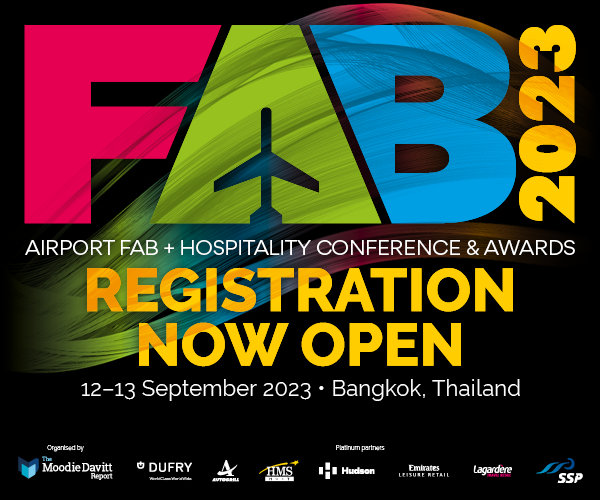
Note: The Moodie Davitt Report publishes the FAB Newsletter, which features highlights of openings, events and campaigns from around the world of airport and travel dining.
Please email Kristyn@MoodieDavittReport.com to subscribe.
FAB EZINE SET TO RETURNThe Moodie Davitt Report is delighted to announce the return of the FAB eZine, a standalone digital magazine dedicated to airport and other travel-related food & beverage views, news, trends, tastes, people, product and principles. Initially quarterly, beginning in Q4 2023, The FAB eZine will devote year-round coverage to the burgeoning airport food & beverage sector, including broader hospitality services such as hotels and lounges. 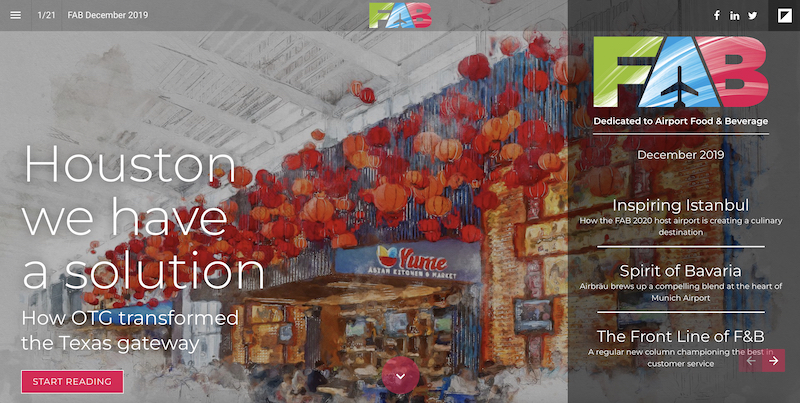 The FAB eZine will complement the annual Airport Food & Beverage (FAB) Conference & Awards and our already extensive F&B and hospitality coverage on The Moodie Davitt Report.com and in The FAB Newsletter.  Elişa Roche has been appointed Editor-in-Chief, bringing a rare combination of culinary and journalistic excellence and experience to the role. Elişa trained as a chef as part of ‘Jamie’s Kitchen’, a British TV show watched by millions and fronted by celebrity chef Jamie Oliver. She went on to work as Chef de Partie at some of London’s top Michelin-starred kitchens, e.g. Fino (now Barrafina), The Ivy and Bambou. Cooking later turned to food writing and presenting, most recently as overseeing editorial partnerships at Food Matters Live. Elişa was also Host and Producer of award-winning B2B podcast ‘Career Conversations’, encouraging young people into the food & drinks industry. *For editorial enquiries please contact Elişa Roche at Elisa@MoodieDavittReport.com. For advertising please reach out to Martin Moodie at Martin@MoodieDavittReport.com |





